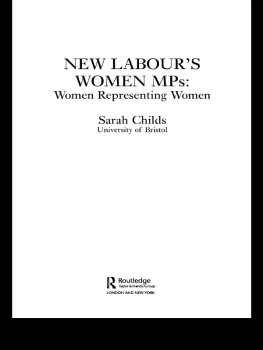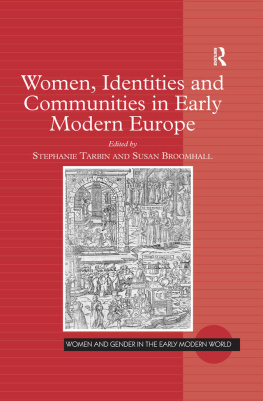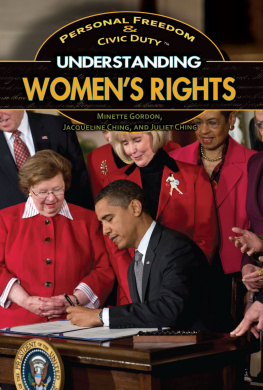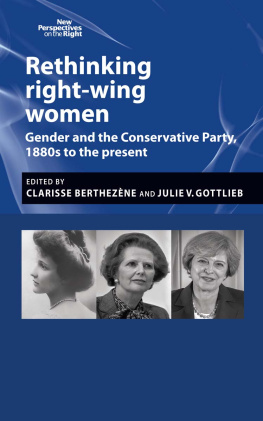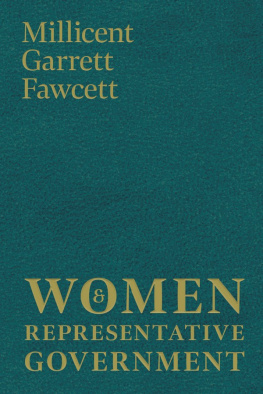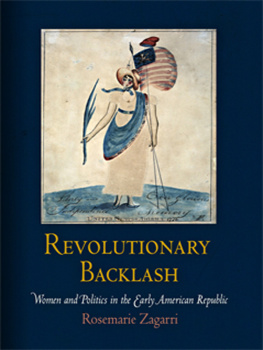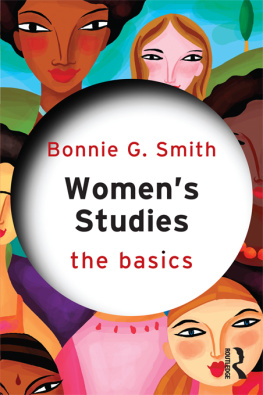NEW LABOURS WOMEN MPs:
It was not long after the election of a record number of women to the House of Commons in 1997 that the backlash began. Criticism of the women was all-encompassing. They wore the wrong clothes, they voted the wrong way, they were concerned with the wrong issues. Above all, they were accused of failing to have made a difference and to have failed women.
Drawing on in-depth interviews with more than half of the new Labour women MPs, Sarah Childs reveals how the women experienced being MPs, and explores whether they acted for and like women in their constituencies, in Parliament and in government. It offers important insights into theories of womens political representation, showing that the relationship between womens descriptive and substantive representation is complicated, that party and gender identities are crucial, that womens differences must be acknowledged, and concluding that it might not always be possible for women representatives to act for women, even if they want to.
Including sections on womens selection for Parliament; whether women MPs act as role models; why it is important that women should be present in politics; as well as exploring in depth the subject of womens substantive representation, New Labours Women MPs is essential reading for all those interested in women and politics, legislative studies, political behaviour and representation.
Sarah Childs is a lecturer in politics at the University of Bristol.
NEW LABOURS
WOMEN MPs:
Women Representing Women
Sarah Childs
University of Bristol
First published 2004 by Routledge, an imprint of Taylor & Francis
11 New Fetter Lane, London EC4P 4EE
Simultaneously published in the USA and Canada
by Routledge
29 West 35th Street, New York, NY 10001
Routledge is an imprint of the Taylor & Francis Group
This edition published in the Taylor & Francis e-Library, 2004.
2004 Sarah Childs
All rights reserved. No part of this book may be reprinted or reproduced or utilised in any form or by any electronic, mechanical, or other means, now known or hereafter invented, including photocopying and recording, or in any information storage or retrieval system, without permission in writing from the publishers.
The publisher makes no representation, express or implied, with regard to the accuracy of the information contained in this book and cannot accept any legal responsibility or liability for any errors or omissions that may be made.
British Library Cataloguing in Publication Data
A catalogue record for this book is available from the British Library
Library of Congress Cataloguing in Publication Data
Childs, Sarah, 1969
New Labours women MPs: women representing women/Sarah Childs.
p. cm.
Includes bibliographical references and index.
ISBN 0-7146-5661-5 (cloth) ISBN 0-7146-8566-6 (pbk)
1. Women in politicsGreat Britain. 2. Women legislatorsGreat Britain
Interviews. 3. Labour Party (Great Britain) 4. WomenGreat BritainSocial
conditions. 5. Representative government and representationGreat Britain.
6. Great BritainPolitics
HQ1391.G7C48 2003
320.0820941dc22 2003062074
ISBN 0-203-33087-0 Master e-book ISBN
ISBN 0-7146-5661-5 (Hb)
ISSN 0-7146-8566-6 (Pb)
Foreword
When I was first elected as MP for Peckham 20 years ago, I joined a House of Commons which was 97 per cent men.
When I look at the new Labour women MPs still outnumbered four to one by their male colleagues I am in no doubt how important are the changes that they have made to our party, to our parliament and to our country. Of course we have yet to achieve all we want to and many battles lie ahead, but the women MPs have transformed the face of parliament and with it the agenda of politics and government.
At the time of writing this introduction we are just introducing into parliament our Domestic Violence Bill. I am in no doubt that it is the backing of the Labour women MPs which enabled the ideas of the bill to be turned into legislation. I remember only too well the response of the House to Jo Richardsons campaigns on domestic violence in the late 1970s and early 1980s. If you mentioned domestic violence once it could be ignored mention it twice and you were regarded as obsessed. That has changed, and now domestic violence has found its rightful place on the law and order agenda.
In the early l980s when I spoke in the House of Commons calling for more nurseries and after-school clubs, I was jeered by my own side as well as by the Tories. The overwhelmingly male parliament just could not see the point of even discussing it. Now, we have a National Childcare Strategy to spread nurseries and a new Childrens Minister to spearhead it. That would have been unthinkable in a House of Commons with only 3 per cent women. The presence of the Labour women has changed the definition of what is political what is appropriate for parliamentary business. Having more women in the House of Commons also makes it much easier for the women to go about their business, and to succeed in the difficult struggle of balancing home and work.
When I was in the House of Commons in the early 1980s with three young children, there was no one to share ideas about how to succeed in being a good MP and a good mother. When I was in a standing committee considering a Bill, the Chair congratulated one MP whose wife had had a baby that morning. I wondered why he was at the committee rather than being at home. Now it is not unusual to see young women MPs pregnant or to welcome back those whove had a baby usually well-timed to coincide with the Summer Recess. And men MPs take some time off for paternity leave as well as doing their work in a parliament which has introduced a new right to paternity leave for all men at work.
Since I entered the House of Commons the proceedings have become televised. We want women as well as men to see that they are represented. Why should any woman watching an all-male parliament think that it has anything to do with her? Now the grey suits that used to dominate the Commons are interspersed with women. The Conservatives still with hardly any women MPs are embarrassed about their overwhelmingly male face being caught on camera, so they cluster their few women around the male shadow minister who is speaking.
When I was first elected I was warned not to speak about womens concerns in case I might get pigeon-holed. But if there are so few women, those who are there have to speak up for womens concerns who else will? We are still in a minority. So I still feel that it is our responsibility as women in the House to raise issues about women outside the House. Of course we have made mistakes. We are still in the minority so our mistakes are more visible. A mistake by a man passes, usually, without comment. A womans mistake will be in the next days papers. Some of the men in the Commons are excellent and some just do a good job. Being an ordinary woman MP will not be possible until we have equal numbers.
Women MPs have changed the face, and the priorities, of government as well as parliament. I remember when John Major announced the names of his first cabinet. Not one woman. What did that say about the Conservative party? That there were no women in the Conservative party? That there were, but they had nothing to say? We denounced the all-male cabinet. There never has been an all-male cabinet since and nor will there be of any party.

